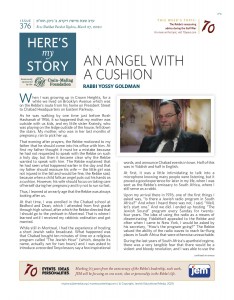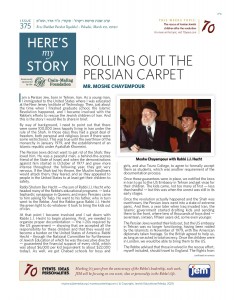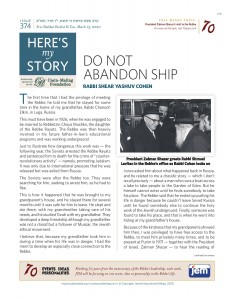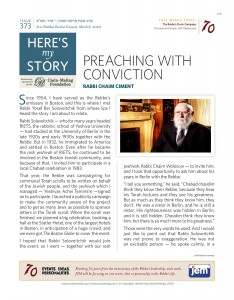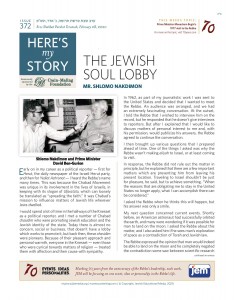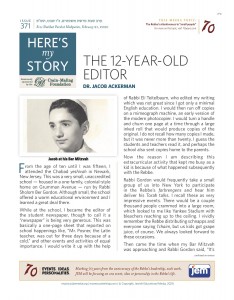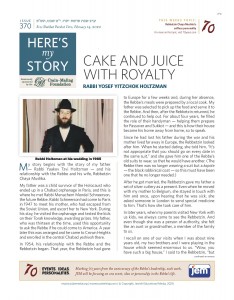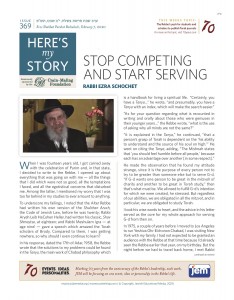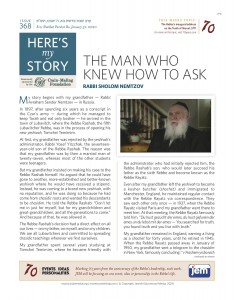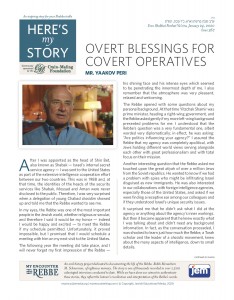An Angel with a Cushion
When I was growing up in Crown Heights, for a while we lived on Brooklyn Avenue which was on the Rebbe’s route from his home on President Street to Chabad Headquarters on Eastern Parkway.
As he was walking by one time just before Rosh Hashanah of 1956, it so happened that my mother was outside with us kids, and my little sister Kraindy, who was playing on the ledge outside of the house, fell down the stairs. My mother, who was in her last months of pregnancy, ran to pick her up.
That evening after prayers, the Rebbe motioned to my father that he should come into his office with him. At first my father thought it must be a mistake because he had not requested to speak with the Rebbe on such a holy day, but then it became clear why the Rebbe wanted to speak with him. The Rebbe explained that he had seen what happened earlier in the day and that my father should reassure his wife – the little girl was not injured in the fall and would be fine, the Rebbe said, because when a child falls an angel puts out his hands as a cushion. However, his wife should focus on taking care of herself during her pregnancy and try not to run so fast.
Thus, I learned at an early age that the Rebbe was always looking after us.
At that time, I was enrolled in the Chabad school at Bedford and Dean, which I attended from first grade through high school, after which the Rebbe directed that I should go to the yeshivah in Montreal. That is where I learned until I received my rabbinic ordination and got married.
While still in Montreal, I had the experience of hosting a short Jewish radio broadcast. What happened was that Chabad bought ten minutes of time on a religious program called “The Jewish Hour” (which, despite its name, actually ran for two hours) and I was asked to introduce a recorded Tanya lesson, say a few inspirational words, and announce Chabad events in town. Half of this was in Yiddish and half in English. (more…)


